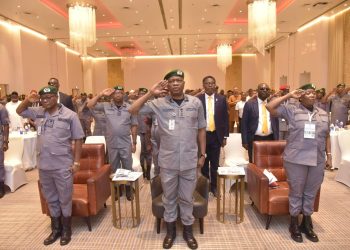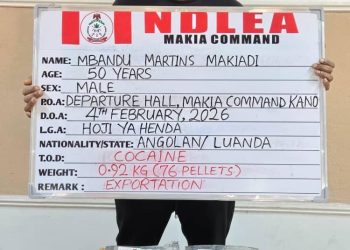By Nkechi Eze
The Chairman of the Independent National Electoral Commission (INEC), Professor Mahmood Yakubu, on Tuesday, 1st July 2025, convened the second quarterly consultative meeting with Resident Electoral Commissioners (RECs) at the Commission’s headquarters in Abuja. The session brought together National Commissioners, RECs from across the country, the Secretary to the Commission, Directors, senior INEC officials, and members of the INEC Press Corps.
In his opening remarks, Professor Yakubu welcomed the RECs to the crucial meeting and formally introduced two National Commissioners, Professor Sunday Aja and Abdulrazak Yusuf, who were attending their first consultative session following their recent assumption of duty. He also acknowledged the presence of six newly sworn-in RECs, noting that four of them were participating in the quarterly meeting for the first time.
He explained that the quarterly interaction with RECs is traditionally held after a round of consultative meetings with critical electoral stakeholders. “Throughout last week,” he stated, “the Commission met with leaders of Political Parties, Civil Society Organisations, the Media, and the Inter-Agency Consultative Committee on Election Security (ICCES). Matters arising from these engagements that require your attention will be discussed at this meeting.”
The INEC Chairman expressed satisfaction with the current full composition of RECs across the 36 States and the Federal Capital Territory (FCT), but reminded them that their responsibilities are not limited to election periods. “I wish to remind you that your work does not begin as the General Election approaches. You are full-time Commissioners,” he said, stressing the need for proactiveness and autonomy. “There are policy and procedural issues already determined by the Commission which you need to implement without prompting from the Headquarters in Abuja.”
While acknowledging that some RECs had already shown commendable initiative, Professor Yakubu encouraged all Commissioners to intensify their efforts. He urged them to focus on internal staff training and capacity building even without elaborate conferences or workshops. “You do not need an elaborate conference or workshop to build the capacity of your staff,” he said. “You also need to provide us with information on your plans to enhance voter access to polling units by decongesting some of them.”
The INEC boss also directed attention to key operational areas that require immediate action. These include the cleanup of the voters’ register, deeper engagement with electoral stakeholders at the State and Local Government levels, and the effective management of electoral logistics and security. “Elections and electoral activities take place in the States of the Federation,” he emphasized. “Your role as managers of personnel and resources is critical for success. You can only effectively discharge your responsibilities when you are knowledgeable and committed.”
Highlighting the Commission’s calendar, Professor Yakubu revealed that INEC has already scheduled five major elections between August 2025 and August 2026. These include bye-elections in 12 States on 16th August 2025, the Anambra State Governorship election on 8th November 2025, the FCT Area Council elections on 21st February 2026, the Ekiti Governorship election on 20th June 2026, and the Osun Governorship election on 8th August 2026.
“The Commission has released the Timetable and Schedule of Activities for these elections, and some of the activities have already been carried out,” he disclosed. “These include the commencement of campaign by Political Parties in Anambra State, the publication of the Notice of Election for the Ekiti State Governorship election, and the conclusion of party primaries for the FCT Area Council elections.”
On voter registration, Professor Yakubu announced that the Continuous Voter Registration (CVR) exercise will resume nationwide on 18th August 2025 for online pre-registration and on 25th August for in-person registration. However, he noted that Anambra State will begin its CVR exercise earlier, starting next week simultaneously across all 326 Wards. “This will enable the Commission to conclude the exercise and compile the new voters’ register not later than 90 days before the date fixed for the election as provided by law,” he explained. “You will be updated on the implementation plan at this meeting.”
He added that the detailed timetable and CVR locations have already been made public, and the Commission expects full compliance at the State level.
Turning to legal and regulatory matters, Professor Yakubu addressed concerns over varied interpretations of Section 65 of the Electoral Act 2022, which relates to the review of election results. He disclosed that the Commission was in the process of issuing a supplement to the Regulations and Guidelines for the Conduct of Elections 2022 to clarify its position. “Pursuant to our powers to issue regulations, guidelines and manuals to give effect to the provisions of the Electoral Act… the Commission is working on a supplement to provide clarity on the review of declaration and return at elections,” he said. “As soon as the Commission takes a decision, perhaps as early as this week, the supplementary Regulations and Guidelines will be uploaded to our website and other platforms for public information.”
















